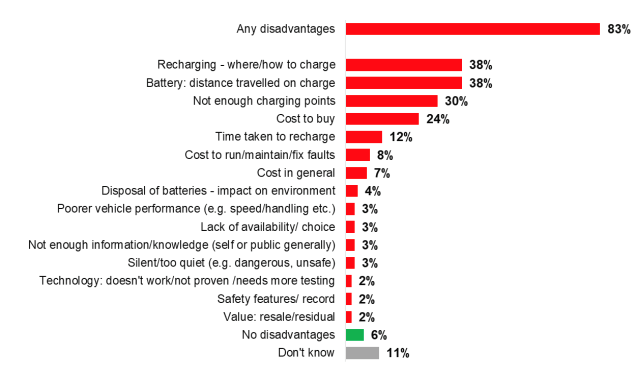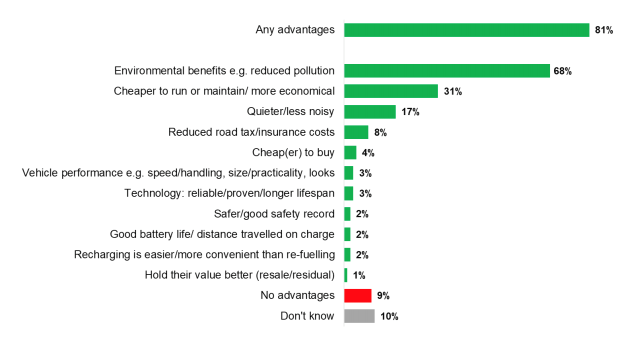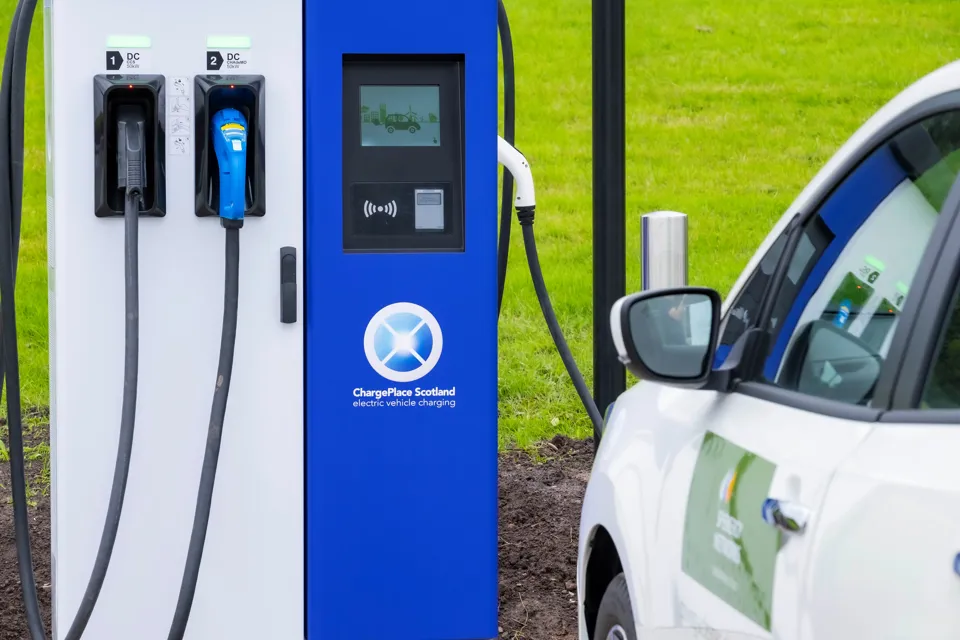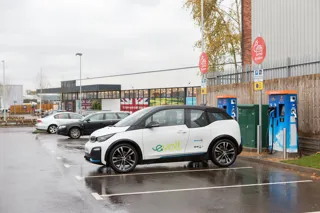Worries around charging infrastructure have been cited as the biggest perceived disadvantage to electric vehicles, according to a Department for Transport (DfT) survey.
The results hint that there is still more work to do in order to educate drivers about how often they need to charge their vehicles compared with their daily mileage, as well as how EVs are mostly charged at home or work, for those that have access to those facilities.
The DfT's latest Transport and Technology Public Attitudes Tracker report surveyed 3,500 adults in England in June 2019.
Four in 10 mentioned recharging (where/how) (38%) and battery life/distance travelled (38%), while three in 10 (30%) mentioned a scarcity of charging points.
When responses were grouped together, 54% mentioned recharging concerns (this included ‘where/how to charge’; ‘not enough charging points’; and ‘time taken to recharge’).
A further 40% mentioned battery concerns around range and the environmental impact of battery disposal.
A small minority (6%) could think of no disadvantages of EVs, while 11% answered ‘don’t know’.
The results echo a survey from ACFO last year that said the accessibility of charge points is a concern fleet drivers.
The latest data goes back to June 2019, well before the Covid-19 lockdown, so it won’t be until the next survey before the impact of the pandemic on transport attitudes can be reviewed.
According to the latest data on Zap Map as of August 25, 2020, there are over 12,000 charge point locations in the UK and 510 devices have been added over the last 30 days.
The survey aims to fill gaps in knowledge on key areas and emerging topics such as public attitudes to autonomous vehicles and future modes of travel.
The Government has created a £400 million Charging Infrastructure Investment Fund (CIIF) to help accelerate the roll-out of publicly-accessible charge points.
This makes £200m of public money – to be matched by private investment – available for all aspects of the charging infrastructure, including charge point equipment and grid enhancements.
Perceived disadvantages of electric vehicles - June 2019

The advantages and future purchasing decisions
The environmental benefit of EVs was by far the most commonly cited advantage (68%), followed by lower running costs associated with EVs (31%) and being quieter/less noisy (17%).
Just 9% said there are no advantages to EVs, while 10% answered ‘don’t know’.
In June 2019, 2% of respondents who had a car or van in their household (or continuous use of a car or van) said they owned a hybrid vehicle and 1% owned a fully electric vehicle.
This compared with 70% who owned a petrol vehicle and 51% who owned a diesel car or van.
Ownership patterns have shifted very slightly compared to December 2017 (when this question was last asked); at that point, 73% owned a petrol vehicle, 48% a diesel vehicle and 2% a hybrid but less than 0.5% owned a fully electric vehicle.
Future purchasing intentions are becoming more favourable towards hybrid vehicles and EVs.
While 45% of those who intended to buy or lease a new car or van said they were most likely to buy a petrol vehicle next time (down from 51% in December 2017) and 20% intended to purchase a diesel vehicle (compared with 22% in December 2017), 18% said they were most likely to buy a hybrid next time (compared with 17% in December 2017), while 8% intended to buy/lease a fully electric vehicle (up from 5% in December 2017).
Perceived advantages of electric vehicles - June 2019




















Login to comment
Comments
No comments have been made yet.